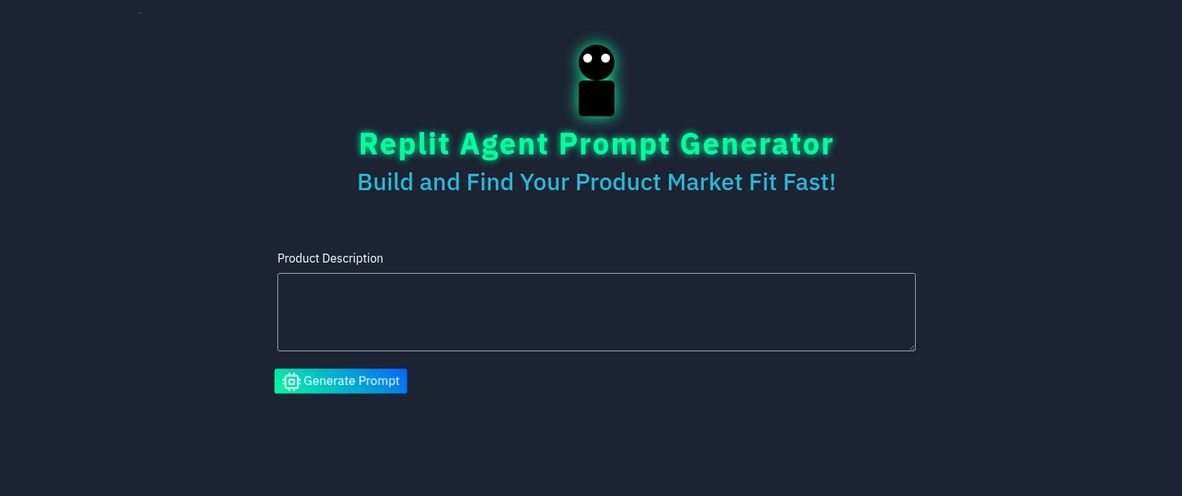The term "innovation" gets thrown around in corporate boardrooms so much it's almost lost all meaning. It's become a buzzword, a checkbox on a quarterly report. Everyone wants to be the next Apple or Tesla, but most companies are stuck with legacy systems, internal politics, and a genuine fear of the unknown. They’re drowning in data but absolutely starving for wisdom.
I’ve been in the SEO and traffic game for years, and I’ve seen this pattern over and over. Companies spend a fortune on data subscriptions, market reports, and analytics tools. And what do they get? A 100-page PDF that gathers digital dust and a dashboard with more charts than a 1990s stockbroker's office. It’s information overload, not insight.
So, when I came across Moonbeam Exchange, my initial reaction was, naturally, skeptical. Another data platform promising to a “data-driven” revolution? Yawn. But the more I looked, the more I saw something a bit different. They don't just sell data; they seem to be selling clarity. And in this noisy world, clarity is worth its weight in gold.
So, What Exactly Is Moonbeam Exchange?
Think of them less as a software company and more as a hybrid. They're part data science platform, part boutique consulting firm. It’s like having a team of nerdy data scientists and sharp business strategists on speed dial. Their whole game is about taking a firehose of information—they claim to pull from over 100 data sources—and refining it into something you can actually use to make a decision.
Their clients aren’t just a single type of business. They work with corporate innovation labs (the “skunkworks” teams trying to build the future), startups trying to disrupt the present, and even economic development organizations (the city-level groups trying to attract the best talent and companies). It’s a wide net, but the common thread is a need for high-quality, actionable intelligence to make the next big move.
The Three Pillars of Their Operation
From what I can gather from their site and what I know about the industry, their services boil down to three core areas. It’s not just a product, it's a process.
Beyond Just Another Report: Their Market Intelligence
This is their bread and butter. But they seem to be fighting against the generic, off-the-shelf market report. Their approach is about crafting bespoke intelligence. Instead of telling you the general market for electric vehicles is growing (thanks, Captain Obvious), they aim to answer specific, tough questions. Questions like, “Which specific battery tech startups in Southeast Asia are filing the most relevant patents and are most likely to be open to a partnership in the next 18 months?”
That’s a whole different level of detail. It’s the difference between a map of the world and a GPS route with traffic analysis. This is where their claimed 100+ data sources come into play—they’re presumably pulling from patent databases, investment records, academic papers, and who knows what else to paint a complete picture.
Building an Innovation Engine: The Programming Side
Here’s where the consulting side really shows. I've always felt that the “let's build a culture of innovation” talk is usually fluff. It often means putting up some motivational posters and buying a ping-pong table. Moonbeam’s “Innovation Programming,” however, sounds more practical. They talk about igniting a culture, which suggests they get involved in things like setting up internal challenges, running hackathons, or creating structured programs for startup scouting. It’s about creating the systems for innovation, not just wishing for it to happen. It's the difference between buying a gym membership and hiring a personal trainer who actually makes you go.
The Agonizing Build, Buy, or Partner Dilemma
Ah, the classic strategic question. A company identifies a new technology it needs. Should we try to build it ourselves? Should we just acquire a company that has already built it? Or should we find a partner to co-develop it with? This decision can make or break a company's future. Moonbeam’s “Strategic Sourcing” service is designed to be the guide through this minefield. By mapping the landscape of existing tech, identifying potential acquisition targets, and vetting potential partners, they help companies avoid costly mistakes. It's part matchmaking, part private investigation.
"Moonbeam Exchange provided critical data and insights that informed our growth strategy and international expansion. Their insights are direct, data-driven, and actionable."
Who Is This Really For?
A tool like this isn't for everyone. If you're a local coffee shop, you probably don't need a global technology scouting report. But for their specific audience, this could be a game-changer.
- The Corporate Intrapreneur: You’re leading a small, agile team inside a giant corporation. You have a great idea, but you need to convince the C-suite it's viable. Moonbeam can arm you with the unbiased, third-party data to make your case and look like the smartest person in teh room.
- The Ambitious Startup: You're like BioLyst, the cybersecurity company from one of their testimonials. You have limited resources but big dreams. You can't afford a full-time market research department, but you need to know where to place your bets. A targeted project with a firm like this could give you the intel to compete with the big dogs.
- The City Builders (EDOs): You’re an Economic Development Organization trying to turn your city into the next tech hub. You need to know which industries are on the rise and which specific companies to court. This kind of macro-level intelligence could inform your entire strategy for urban growth.
The Elephant in the Room: Let's Talk Pricing
So, how much does this magic box of insights cost? Unsurprisingly, you won't find a pricing page on their website. This isn’t a SaaS tool with neat little tiers you can buy with a corporate card. This is a high-touch, boutique service.
My educated guess? It’s not cheap. The pricing is almost certainly project-based and tailored to the scope of work. A simple market landscape report will cost 'X', while a full-blown strategic sourcing and partnership facilitation project will cost '10X'. This is an investment, not an expense. For the right company facing a multi-million dollar decision, a five or six-figure consulting fee to get it right is a no-brainer. For a bootstrapped startup, it might be out of reach. You’re paying for expertise and a custom-built solution, and that comes with a premium price tag.
My Honest Take on Moonbeam Exchange
After digging in, I’m moving from “skeptical” to “cautiously optimistic.”
What I really like is the blend of a powerful data platform with human-led consulting. AI and algorithms are great at finding patterns, but you often need a human to interpret the meaning and ask the right questions in the first place. Their focus on answering specific, difficult questions rather than just selling data is the right one.
What gives me pause? Well, the effectiveness of any service like this is a two-way street. The insights are only as good as the initial questions asked and the quality of the data available. A company also has to be ready and willing to act on the intelligence provided. Moonbeam Exchange isn't a magic wand; it’s a powerful compass. If you’re not prepared to actually sail the ship, the compass is just a pretty desk ornament. The opaque pricing, while understandable for a consulting firm, can also be a barrier for companies that need to budget precisely.
Frequently Asked Questions about Moonbeam Exchange
- Is Moonbeam Exchange just a data reseller?
- It doesn't appear so. While they use many data sources, their value proposition is in the analysis, interpretation, and strategic advice they build on top of that data. They are selling the refined fuel, not the raw crude.
- How is this different from a firm like Gartner or McKinsey?
- They seem to sit in a niche between the two. They are more focused and data-science-driven than a traditional broad management consulting firm like McKinsey, but more bespoke and hands-on than a large-scale research and advisory firm like Gartner, which often sells syndicated reports to a wide audience.
- Do I need my own data science team to use their insights?
- I doubt it. The whole point seems to be that they deliver actionable insights, not raw data files. Their service is designed for business leaders and strategists to make decisions, not for data scientists to run models.
- What industries do they specialize in?
- While their approach seems industry-agnostic, the language and testimonials point towards technology, deep tech, cybersecurity, and advanced manufacturing. Any field with a complex R&D and intellectual property landscape is a likely fit.
- Is Moonbeam Exchange suitable for a very small, early-stage startup?
- Probably not, unless the startup is very well-funded. Their services appear geared towards companies at an inflection point—either a large corporation needing to innovate or a growth-stage startup preparing for a major expansion.
- How long does an engagement typically take?
- This would vary wildly. A market intelligence report might take a few weeks. A full strategic sourcing project to find an acquisition target could take several months or more.
The Final Word on Moonbeam Exchange
In a world awash with useless data, a service that promises genuine clarity is incredibly appealing. Moonbeam Exchange appears to be a serious tool for serious players. It's for the teams and leaders who have moved past the innovation theater and are ready to make real, data-informed bets on their future.
It's not a silver bullet, and it requires a significant investment of both money and commitment. But for a company standing at a strategic crossroads, having a map and compass built by experts could be the difference between finding a shortcut to success and getting hopelessly lost in the woods. And that's a proposition worth considering.
Reference and Sources
- Moonbeam Exchange Official Website
- Harvard Business Review - The Hard Truth About Innovative Cultures




